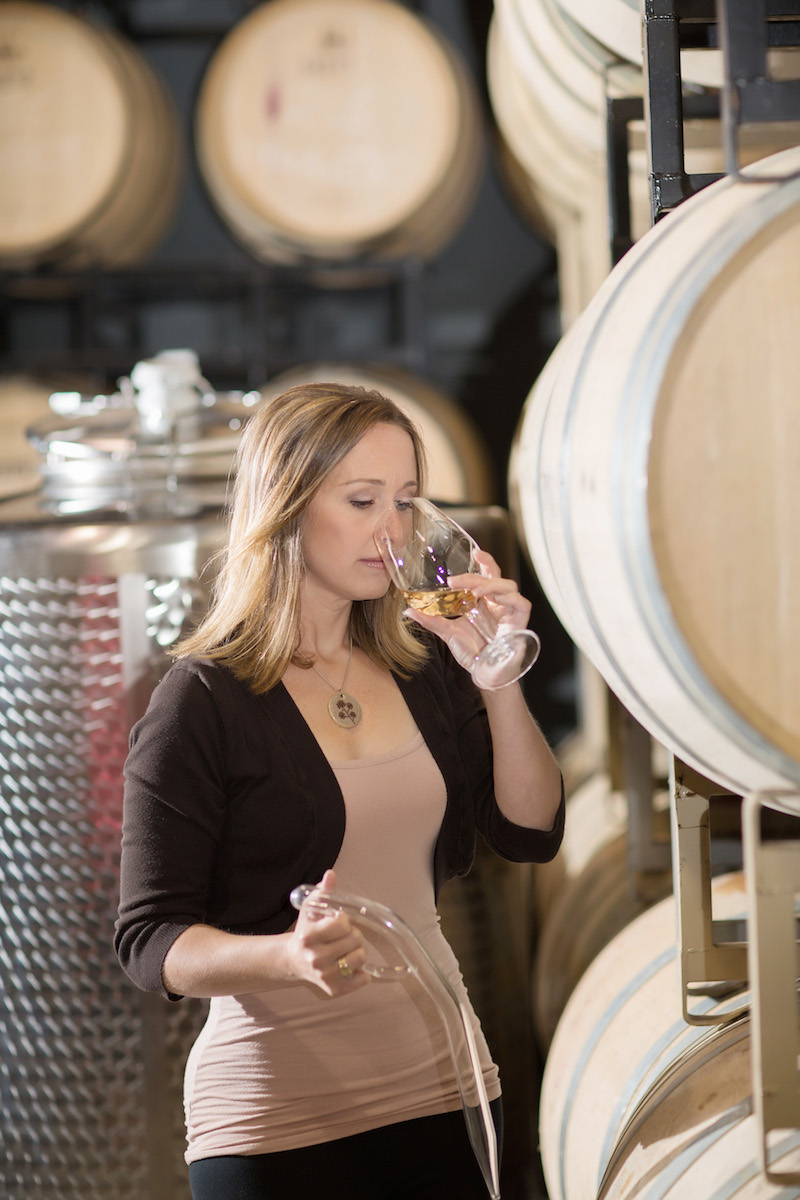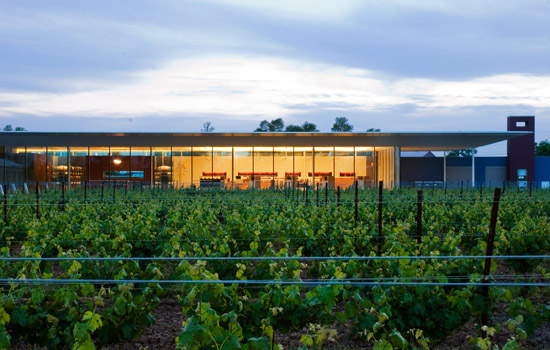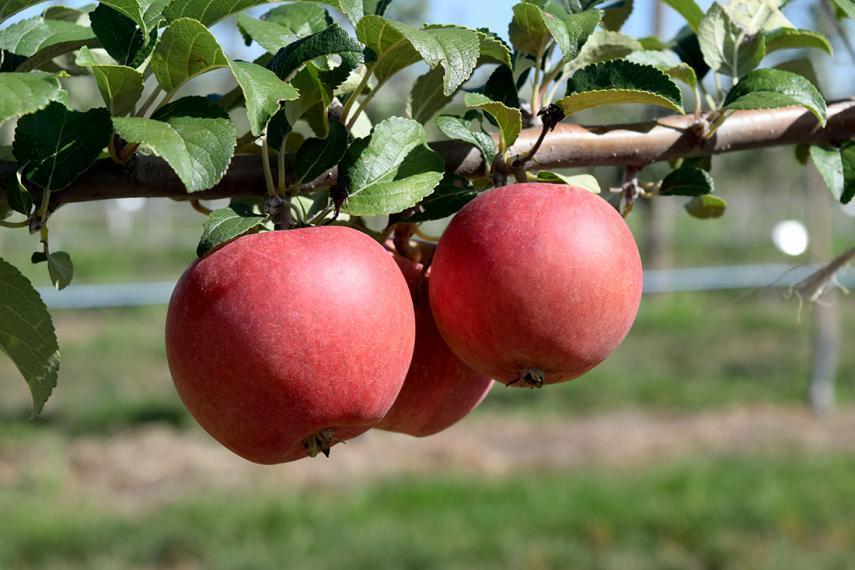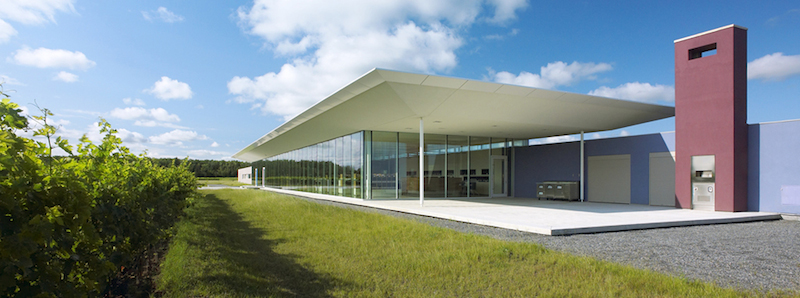
Getting caught up on Canadian wine news, we have stories on women increasing their numbers in the fields of winemaking and grape growing, winners of CAPS competition announced, Southbrook wins a Spirit of Niagara award, a new course for Ontario cider makers, a financial boost for cider makers, and a website launches that brings all Canadian wine regions together.
Female scientists grow their presence
in the grape and wine industry
As International Women’s Day (today, by the way) pushes for greater gender equality across the sciences, there’s at least one facet of the STEM sector where women are beginning to outnumber men.
They may be underrepresented in some science, technology, engineering, mathematics and computer science (STEM) disciplines, but women have been steadily increasing their numbers in the fields of winemaking and grape growing.
 Over the last three years, 58.1 per cent of graduates from Brock University’s Oenology and Viticulture (OEVI) program have been female, with 62.5 per cent earning a Bachelor of Science in Oenology and Viticulture and 53.3 per cent graduating with a certificate in Grape and Wine Technology.
Over the last three years, 58.1 per cent of graduates from Brock University’s Oenology and Viticulture (OEVI) program have been female, with 62.5 per cent earning a Bachelor of Science in Oenology and Viticulture and 53.3 per cent graduating with a certificate in Grape and Wine Technology.
To put that into context, a 2011 Stats Can report on gender differences in Canadian universities showed women accounted for just 39 per cent of STEM graduates aged 25 to 34. For non-STEM programs, women accounted for 66 per cent of university graduates. Globally, the United Nations says only 22 per cent of those working in the sciences are women.
At Brock, the pattern of women graduating from the OEVI program is likely to continue in the future as just over 60 per cent of current students in the program are women.
Brock alumna Emma Garner (BSc, ’04), currently one of four winemakers at Thirty Bench winery in Beamsville, is one example of a female graduate who has found career success in the industry since completing the program.
Garner, who was last year’s Ontario Winemaker of the Year, said the industry has historically had a greater focus on men.
“However, in recent years there has been a swing towards showcasing women. And there are so many fantastic female producers — winemakers, owners, promoters — working in all aspects of the industry and making substantial contributions.”
This shift has also been noticed by Debbie Inglis, the Director of Brock’s Cool Climate Oenology and Viticulture Institute (CCOVI).
Within CCIOVI itself, seven of nine full-time staff members are female, as are many of the flagship research institute’s researchers and research assistants. And all of the graduate students currently working with Inglis this year are also female.
She said maintaining diversity is key to remaining competitive in such a demanding and innovative industry.
“As more women continue with careers in science, they act as mentors and role models for the next generation, stimulating even more interest in these career options for young women peering into the future,” said Inglis. “It is very rewarding to see the valued contribution that women are making in the grape and wine industry, from winemakers to vineyard operations to research positions.”
Garner agrees.
“Every time I encounter another woman who is trying to work in this industry — which is so intense — as well as balance a healthy lifestyle, care for a family and herself, I am inspired.”
Southbrook named Company of the Year
in Spirit of Niagara Awards

Southbrook Vineyards — the first Canadiancertified organic and biodynamic winery — was named Company of the Year in the Spirit of Niagara Awards presented by the Niagara on the Lake Chamber of Commerce at a gala event held last week in Niagara on the Lake.
Accepting the award were Bill and Marilyn Redelmeier, owners and proprietors of Southbrook Vineyards, celebrating the tenth anniversary at their Niagara-based winery this year. Presented by Rainer Hummel, president of the Chamber of Council, the Company of the Year designation recognizes a business that has made a significant impact on its industry by demonstrating outstanding growth and development; the winner is a leader who is actively involved in the community, demonstrates good corporate citizenship, sets a new standard for corporate creativity and outstanding leadership, and upholds the new standards they set.
“The Company of the Year winners for the past few years are the bedrock of the business community,” Hummel explained. “Every year the committee reviews the numerous nominations and selects just one company that represents excellence, setting a new standard for corporate creativity and outstanding leadership.” He added: “This year’s winner achieved their status in a different way, with a philosophy they’ve adopted in their company.”
“We are thrilled and honoured with the Spirit of Niagara Award,” said Bill Redelmeier, co-owner of Southbrook Vineyards. “Our focus is on the importance of organic and biodynamic viticulture in the production of great wine, something which places us on the leading edge of winemaking globally. It is a wonderful opportunity for us to be recognized as the leader by our own community.”
Ontario cider producers
welcome support from government

The Ontario Craft Cider Association (OCCA) welcomed the announcement of the Ontario Small Cidery support program Tuesday, made by Ontario Finance Minister the Hon. Charles Sousa and Ontario Agriculture Minister the Hon. Jeff Leal.
The program will help independent, small Ontario cider producers increase capacity and hire more staff which in turn will introduce more consumers to Ontario craft cider.
Eligible cideries will receive up to 74 cents per litre on eligible sales — to a maximum of $220,000 per year per producer.
In 2015-2016, LCBO sales of craft ciders grew 54%, over the previous year. “This is tremendous news, not just for the 27 Craft cider makers who are members of the OCCA; but all 43 cider producing operations in Ontario and the 230 Ontario Apple Growers who supply the fruit used to make Ontario’s new favourite drink”, said Thomas Wilson, Chair OCCA.
Members of the Ontario Craft Cider Association are required to use only 100% Ontario apples for their cider so the program will ultimately result in more apple trees in the ground and increased rural economic activity from farm to glass.
“It is a great day when Ontario Craft Cider makers join the ranks of beer and wine producers as a provincially recognized industry. With this much needed program our members will be able to invest in equipment, employees, and supplies to continue developing our industry potential here in Ontario,” said Wilson. “As Chair of the Ontario Craft Cider Association I would like to thank Premier Wynne, the Hon. Charles Sousa and the Hon. Jeff Leal for the new Ontario small cidery support program. This is a great step to growing our world class cider industry in Ontario and we look forward to continued co-operation and partnership in the years to come”.
Ontario Craft Cider Association — Key Stats:
• 27 Members
• Ontario craft cider producers produced approximately 2.1 million litres (21,000 hectolitres) of craft cider in 2015.
• Approximately 107 full-time employees in 2015
• Total sales generated by craft cider producers in Ontario were approximately $12.3 million in 2015.
Booming Ontario cider industry
gets training support from CCOVI
Advanced training support for the booming cider industry is coming to Canada. This spring, Brock University’s grape and wine research unit launches Canada’s only internationally accredited program where industry professionals and enthusiasts alike can raise their expertise at fermenting apples into cider and pears into perry.
Brock’s Cool Climate Oenology and Viticulture Institute (CCOVI) will offer the intensive week-long course April 24-28, under the Cider Institute of North America’s (CINA) renowned training program.
Before now, the only two sites providing such programs were Cornell University in New York state, and Oregon State University.
North America’s cider business has been on a roll. In Ontario alone, net sales of local craft cider skyrocketed 54 per cent in 2015-16 to $5.1 million, according to the Liquor Control Board of Ontario.
But even as consumer demand has soared, the industry’s production and research community only has a finite amount of collective experience, says CINA president Nick Gunn, himself an Oregon cider consultant.
The Cider and Perry Production Foundations course at Brock will cover all aspects of cider production including ingredient sourcing, quality control and the economics of cider making. The hands-on program uses lectures, lab work, workshops and tastings to give learners a step-by-step guide to production.
“In this environment, start-up cider makers have the unique opportunity to jump start their quality and technique through industry accredited programs such as Brock’s that create a foundation for business success,” Gunn said.
CINA certification is the recognized standard for quality in the cider industry, says CCOVI’s continuing education manager Barb Tatarnic.
“Bringing CINA training to Canada puts CCOVI on the leading edge of an industry that’s exploding,” she said. “And for Brock, it’s a natural extension of the programs we already run for the grape and wine industry.”
Registration for the intensive five-day course will cost $1,500. The class is limited to 25 participants, and registration closes April 13. Online registration can be done at ccovi.ca/ce/node/2946
In addition to the foundation course, CCOVI also plans to add CINA’s Master Class to its continuing education lineup in the future.
With 20 years experience in providing research, outreach and education to the grape and wine industry, CCOVI expanded its programming to include the spirits industry in 2016.
CAPS crowns the best
Ontario sommelier for 2017


The Ontario chapter of the Canadian Association of Professional Sommeliers (CAPS Ontario) announced that Emily Pearce-Bibona of Femmes du Vins and sommelier at Barberian’s Steak House in Toronto as the winner of the Best Ontario Sommelier Competition 2017.
Pearce-Bibona won the coveted title after a day long program of competitive challenges at the Centre for Hospitality & Culinary Arts at George Brown College on March 5. The two runners-up in a tight race of 24 participants were José Luis Fernandez, sommelier at Quatrefoil restaurant in Dundas, followed by Nathan Morrell, sommelier at Bar Isabel in Toronto.
The top three participants qualified for the final competition after earning highest marks in a preliminary written exam and gruelling competitive tasting. Each finalist then took their turn in the spotlight to face a further round of challenges in sommelier knowledge, tasting and theory, culminating in a live service demonstration before an audience of their peers and the public.
Pearce-Bibona also won the Lifford Wine and Spirits Award for Best Taster, presented by honorary event judge and sponsor, Steven Campbell of Lifford Wine and Spirits.
The event’s judges included John Szabo, Master Sommelier (MS) and Sara D’Amato, president of CAPS Ontario, and Brent Fraser, sommelier at The Granite Club, Toronto. The event’s technical committee consisted of director Alexandra Evans, Serge Janic (named Best Serbian Sommelier, 2014) and Jennifer Huether, Master Sommelier (MS) of Jackson Family Wines in California.
The Best Ontario Sommelier Competition is presented by CAPS Ontario every two years, recognizing excellence among Ontario’s wine professionals.
As winner of the Best Ontario Sommelier Competition, Pearce-Bibona will represent the province of Ontario at the upcoming prestigious Canadian National Sommelier Competition in Vancouver on September 3-5.
Past winners have gone on to win the Concours du Meilleur Sommelier des Amériques and achieve top rankings in L’Association de la Sommellerie Internationale’s Concours du Meilleur Sommelier du Monde, competing successfully for Canada at the very highest levels of international competition.
Canadian wine industry
launches dedicated website
Wines of Canada – the initiative bringing together the four primary wine regions of Canada – has officially launched its website. The Wines of Canada brand was created in late 2015 as an umbrella brand, with a view to developing greater awareness of Canadian wines, and helping consumers navigate the different wine regions within Canada and increase their knowledge of Canadian wine.
The launch of the new website will empower Canadian wine lovers from coast to coast, providing added information on the industry, its four primary wine regions, key varietals, winery tourism, and much more.
The Canadian Vintners Association has worked closely with industry partners the British Columbia Wine Institute (BCWI), the Wine Marketing Association of Ontario (WMAO) and the Winery Association of Nova Scotia (WANS) in the launch of this website. The website connects a number of official sources of information on the Canadian wine industry, including the provincial bodies responsible for the oversight of VQA (Vintners Quality Assurance), the provincial wine industry associations and the winery tourism site, Wine411.ca.
“Increasingly, Canadian consumers are interested in buying high quality local wines, and this new website will support consumer knowledge on Canada’s wine styles, key varietals, regions and appellations,” said Dan Paszkowski, CVA President. “Canadian consumers seek this type of information, which is vital to help grow the market share of Canadian wine in every province and territory across the nation.”
Currently 32% of wine sold nationally is made in Canada, while there are over 3 million visitors to Canadian wineries nationally. This new resource will help Canadians learn more about Canadian wine and Canada’s wine regions, with a view to industry growth coast to coast.







Not to be confused with WinesofCanada.com. A website that was established over 25 years ago by Bob Bell. This could get very confusing for those googling the website name.